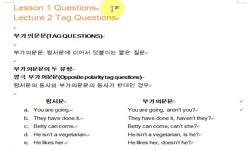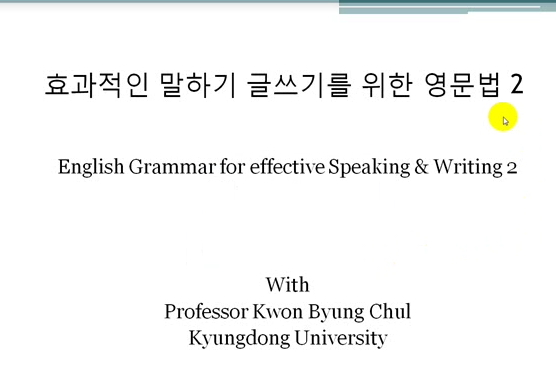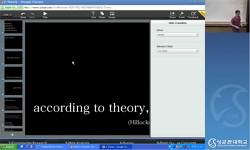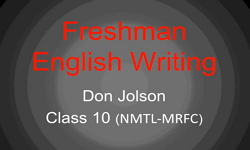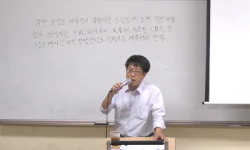Studies of spoken and written English of native or non-native English speakers have been undertaken. They have shown distinctive linguistic properties of each mode of English across different text types, genres, and other contextual variables. In a si...
http://chineseinput.net/에서 pinyin(병음)방식으로 중국어를 변환할 수 있습니다.
변환된 중국어를 복사하여 사용하시면 됩니다.
- 中文 을 입력하시려면 zhongwen을 입력하시고 space를누르시면됩니다.
- 北京 을 입력하시려면 beijing을 입력하시고 space를 누르시면 됩니다.
https://www.riss.kr/link?id=A104736840
-
저자
송종민 (경희대학교)
- 발행기관
- 학술지명
- 권호사항
-
발행연도
2013
-
작성언어
English
-
주제어
Korean EFL learners ; linguistic properties ; speech ; writing ; 한국인 영어 학습자 ; 언어의 특성 ; 말하기 ; 쓰기
-
등재정보
KCI등재
-
자료형태
학술저널
- 발행기관 URL
-
수록면
251-281(31쪽)
-
KCI 피인용횟수
2
- 제공처
- 소장기관
-
0
상세조회 -
0
다운로드
부가정보
다국어 초록 (Multilingual Abstract)
Studies of spoken and written English of native or non-native English speakers have been undertaken. They have shown distinctive linguistic properties of each mode of English across different text types, genres, and other contextual variables. In a similar vein, a comparative analysis of spoken and written English of Korean EFL learners is carried out in this paper by using controlled language data. The data in this study is monologic rhetorical description in speech and writing, and its topics are controlled by the tasks given to the participants. The findings present that although text types and topics are the same, speech and writing of Korean EFL learners include distinctive characteristics of each mode of English. More specifically, their written English is more elaborated, expressive, and grammatically more complex than their spoken English, whereas their speech does not include any type of linguistic complexity. This demonstrates that Korean EFL learners are able to differentiate speech from writing in English to a certain extent however, they still need to expand their awareness of the differences between the two modes of English.
참고문헌 (Reference)
1 Kang, J. Y., "Written narratives as an index of L2 competence in Korean EFL learners" 14 : 259-279, 2005
2 Biber, D., "What does frequency have to do with grammar teaching?" 24 (24): 199-208, 2002
3 Kennedy, G., "Variation in the distribution of modal verbs in the British National Corpus, In Using corpora to explore linguistic variation" John Benjamins 73-90, 2002
4 Biber, D., "Variation among university spoken and written registers: A new multi-dimensional analysis, In Corpus analysis: Language structure and language use" Rodopi 47-70, 2003
5 Biber, D., "Variation across speech and writing" Cambridge University Press 1988
6 Biber, D., "University language: A corpus-based study of spoken and written registers" John Benjamins 2006
7 Fang, Z., "Understanding the language demands of schooling : Nouns in academic registers" 38 : 247-273, 2006
8 Ädel, A., "The use of metadiscourse in argumentative texts by advanced learners and native speakers of English" John Benjamins 2006
9 Seo, E., "The role and status of English in Korean society: Its pedagogical and societal implications" 11 : 69-86, 1995
10 Chafe, W., "The relation between written and spoken language" 16 : 387-407, 1987
1 Kang, J. Y., "Written narratives as an index of L2 competence in Korean EFL learners" 14 : 259-279, 2005
2 Biber, D., "What does frequency have to do with grammar teaching?" 24 (24): 199-208, 2002
3 Kennedy, G., "Variation in the distribution of modal verbs in the British National Corpus, In Using corpora to explore linguistic variation" John Benjamins 73-90, 2002
4 Biber, D., "Variation among university spoken and written registers: A new multi-dimensional analysis, In Corpus analysis: Language structure and language use" Rodopi 47-70, 2003
5 Biber, D., "Variation across speech and writing" Cambridge University Press 1988
6 Biber, D., "University language: A corpus-based study of spoken and written registers" John Benjamins 2006
7 Fang, Z., "Understanding the language demands of schooling : Nouns in academic registers" 38 : 247-273, 2006
8 Ädel, A., "The use of metadiscourse in argumentative texts by advanced learners and native speakers of English" John Benjamins 2006
9 Seo, E., "The role and status of English in Korean society: Its pedagogical and societal implications" 11 : 69-86, 1995
10 Chafe, W., "The relation between written and spoken language" 16 : 387-407, 1987
11 Schafer, J. C., "The linguistic analysis of spoken and written texts, In Exploring speaking-writing relationship: Connections and contrasts" National council of Teachers of English 1-31, 1981
12 Berman, R. A., "The lexicon in writing-speech- differentiation: Developmental perspectives" 13 (13): 183-205, 2010
13 Halliday, M. A. K., "The language of science" Continuum 2004
14 Lumley, T., "The effect of test-taker gender, audience and topic on task performance in tape-mediated assessment of speaking" 22 (22): 415-437, 2005
15 Chalker, S., "The Oxford dictionary of English grammar" Oxford University Press 1998
16 Crystal, D., "The Cambridge of encyclopedia of the English language" Cambridge University Press 1995
17 Stubbs, M., "Text and corpus analysis : Computer-assisted studies of language and culture" Blackwell 1996
18 Uhm, C. J., "Temporal variables and fluency in Korean EFL students’ spoken discourse" 50 (50): 179-203, 1995
19 O’Donnell, R. C., "Syntactic differences between speech and writing" 49 (49): 102-110, 1974
20 Ortega, L., "Syntactic complexity measures and their relationship to L2 proficiency : A research synthesis of college-level L2 writing" 24 (24): 492-518, 2003
21 Iwashita, N., "Syntactic complexity measures and their relation to oral proficiency in Japanese as a foreign language" 3 (3): 151-169, 2006
22 Gilquin, G., "Spoken features in learner academic writing: Identification, explanation and solution" University of Birmingham 27-30, 2007
23 Adolphs, S., "Spoken corpus linguistics : From monomodal to multimodal" Routledge 2013
24 Biber, D., "Spoken and written textual dimensions in English : Resolving the contradictory findings" 62 (62): 384-414, 1986
25 Halliday, M. A. K., "Spoken and written modes of meaning, In On grammar: Volume 1 in the collected works of M. A. K. Halliday" Continuum 323-351, 2002
26 Halliday, M. A. K., "Spoken and written language" Oxford University Press 1985
27 Horowiz, M. W., "Spoken and written expression : An experimental analysis" 68 (68): 640-647, 1964
28 Bailey, K. M., "Speaking, In Practical English language teaching" McGraw Hill 47-66, 2003
29 Biber, D., "Speaking and writing in the university : A multi-dimensional comparison" 36 : 9-48, 2002
30 Biber, D., "Should we use characteristics of conversation to measure grammatical complexity in L2 writing development?" 45 (45): 5-35, 2011
31 Biber, D., "Quantitative corpus-based research : Much more than bean counting" 35 (35): 331-336, 2001
32 Granger, S., "Prefabricated patterns in advanced EFL writing: Collocations and formulae, In A. P. Cowie, In Phraseology: Theory, analysis and applications" Oxford University Press 145-160, 1998
33 McCabe, A., "Patterns of narrative discourse : A multicultural life span approach" Pearson Education 2003
34 Tannen, D., "Oral and literate strategies in spoken and written narratives" 58 (58): 1-21, 1982
35 Akinnaso, F. N., "On the differences between spoken and written language" 25 : 97-125, 1982
36 Biber, D., "On the complexity of discourse complexity: A multi-dimensional analysis, In Variation in English: Multi-dimensional studies" Longman 215-240, 2007
37 Jongmin Song, "Native-like Spoken and Written English Proficiency of Korean Speakers: A Comparative Analysis by Using a Word Count" 한국응용언어학회 24 (24): 133-157, 2008
38 Longacre, R. E., "Narrative versus other discourse genre, In Advances in tagmemics" North-Holland 357-376, 1974
39 Mishler, E., "Narrative and identity: the double arrow of time, In Discourse and identity" Cambridge University Press 30-47, 2006
40 Nelson, N. W., "Measuring written language ability in narrative samples" 23 : 287-309, 2007
41 Rimmer, W., "Measuring grammatical complexity : The Gordian knot" 23 (23): 497-519, 2006
42 Halliday, M. A. K., "Literacy and linguistics: Relationship between spoken and written language, In Analysing English in a global context: A reader" Routledge 181-193, 2001
43 Li, Y., "Linguistic characteristics of ESL writing in task-based e-mail activities" 28 : 229-245, 2000
44 Daller, H., "Lexical richness in the spontaneous speech of bilinguals" 24 (24): 197-222, 2003
45 McCarthy, M., "Language as discourse : Perspectives for language teaching" Longman 1994
46 Kim, J.-B., "Korean Honorification : A kind of expressive meaning" 16 (16): 303-336, 2007
47 Sunderland, J., "Issues of language and gender in second and foreign language education" 33 (33): 203-223, 2000
48 McCarthy, M., "Issues in applied linguistics" Cambridge University Press 2001
49 McNally, L., "Introduction, In Adjectives and adverbs: Syntax, semantics, and discourse" Oxford University Press 1-15, 2008
50 Huddleston, R., "Introduction to the grammar of English" Cambridge University Press 1984
51 Chafe, W. L., "Integration and involvement in speaking, writing, and oral literature, In Spoken and written language: Exploring orality and literacy" Ablex 35-53, 1982
52 Holmes, J., "Harnessing storytelling as a sociopragmatic skill : Applying narrative research to workplace English courses" 45 (45): 510-534, 2011
53 Leech, G., "Grammars on spoken English : New outcomes of corpus-oriented research" 50 (50): 675-724, 2000
54 Nyyssönen, H., "Grammar and lexis in communicative competence, In Principle & practice in applied linguistics: Studies in honour of H. G. Widdowson" Oxford University Press 159-170, 1995
55 Shin, G., "English language teaching system change to enhance the social justice and the efficiency of the national economy" 56 (56): 193-218, 2001
56 Hughes, R., "English in speech and writing : Investigating language and literature" Routledge 1996
57 McCarthy, M., "Discourse analysis for language teachers" Cambridge University Press 1991
58 Johnstone, B., "Discourse analysis" Blackwell 2002
59 Biber, D., "Dimensions of register variation : A cross-linguistic comparison" Cambridge University Press 1995
60 Preston, J. M., "Dimensions of oral and written language fluency" 6 : 936-945, 1967
61 Halliday, M. A. K., "Differences between spoken and written language: Some implications for literacy teaching" Australian Reading Association 37-52, 1979
62 Beaman, K., "Coordination and subordination revisited: Syntactic complexity in spoken and written narrative discourse, In Coherence in spoken and written discourse" Ablex 45-80, 1984
63 Connor, U., "Contrastive rhetoric: Cross-cultural aspects of second language writing" Cambridge University Press 1996
64 Housen, A., "Complexity, accuracy, and fluency in second language acquisition" 30 (30): 461-473, 2009
65 Shirato, J., "Comparing English vocabulary in a spoken learner corpus with a native speaker corpus : Pedagogical implications arising from an empirical study in Japan" 11 (11): 393-412, 2007
66 Council of Europe., "Common European framework of reference for languages : Learning, teaching, assessment" Cambridge University Press 2001
67 Waller, T., "Characteristics of near-native proficiency in writing, In Near-native proficiency in English" Åbo Akadami University 183-294, 1994
68 Carter, R., "Cambridge grammar of English: A comprehensive guide" Cambridge University Press 2006
69 Lee, E. A., "Bridging the gap between grammar and conversation in Korean college English conversation classes" 5 : 27-48, 1999
70 Kramsch, C., "Beyond the second vs. foreign language dichotomy: The subjective dimensions of language learning, In Unity and diversity in language use" Continuum 1-21, 2002
71 Granger, S., "Automative lexical profiling of learner texts, In Learner English on computer" Longman 119-131, 1998
72 Brown, A., "An examination of rater orientations and test-taker performance on English-for-academic-purposes speaking tasks: TOEFL Monograph Series MS-29" Educational Testing Service 2005
73 Philip, G., "Adverbs use in EFL student writing: From learner dictionary to text production" 2008
74 Read, J., "Accessing vocabulary" Cambridge University Press 2000
75 Blass, T., "A psycholinguistic comparison of speech, dictation and writing" 18 : 20-33, 1975
76 Quirk, R., "A comprehensive grammar of the English language" Addison Wesley Longman 1985
77 Skehan, P., "A cognitive approach to language learning" Oxford University Press 1998
78 김철규, "A Corpus-based Comparison of British Professional Writers’ L1 and Korean University Students’ L2 Argumentative Texts on Environmental Issues in Terms of Heteroglossic ENGAGEMENT in Appraisal" 한국응용언어학회 27 (27): 203-230, 2011
동일학술지(권/호) 다른 논문
-
- 한국응용언어학회
- Su-jin Bang
- 2013
- KCI등재
-
Genre Analysis: Undergraduate Engineering Laboratory Report (UELR)
- 한국응용언어학회
- Chae Kwan Jung
- 2013
- KCI등재
-
Explaining Korean High School EFL Learners’ Reading Comprehension with Simple View of Reading
- 한국응용언어학회
- Yusun Kang
- 2013
- KCI등재
-
Genre Feature and Language Competence in Written Arguments of Korean EFL Learners
- 한국응용언어학회
- Hey Seung Kang
- 2013
- KCI등재
분석정보
인용정보 인용지수 설명보기
학술지 이력
| 연월일 | 이력구분 | 이력상세 | 등재구분 |
|---|---|---|---|
| 2027 | 평가예정 | 재인증평가 신청대상 (재인증) | |
| 2021-01-01 | 평가 | 등재학술지 유지 (재인증) |  |
| 2018-01-01 | 평가 | 등재학술지 유지 (등재유지) |  |
| 2015-01-01 | 평가 | 등재학술지 유지 (등재유지) |  |
| 2011-01-01 | 평가 | 등재학술지 유지 (등재유지) |  |
| 2009-01-01 | 평가 | 등재학술지 유지 (등재유지) |  |
| 2007-01-01 | 평가 | 등재학술지 유지 (등재유지) |  |
| 2004-01-01 | 평가 | 등재학술지 선정 (등재후보2차) |  |
| 2003-01-01 | 평가 | 등재후보 1차 PASS (등재후보1차) |  |
| 2002-01-01 | 평가 | 등재후보 1차 FAIL (등재후보1차) |  |
| 2000-07-01 | 평가 | 등재후보학술지 선정 (신규평가) |  |
학술지 인용정보
| 기준연도 | WOS-KCI 통합IF(2년) | KCIF(2년) | KCIF(3년) |
|---|---|---|---|
| 2016 | 0.65 | 0.65 | 0.67 |
| KCIF(4년) | KCIF(5년) | 중심성지수(3년) | 즉시성지수 |
| 0.76 | 0.75 | 1.472 | 0.11 |




 KCI
KCI
